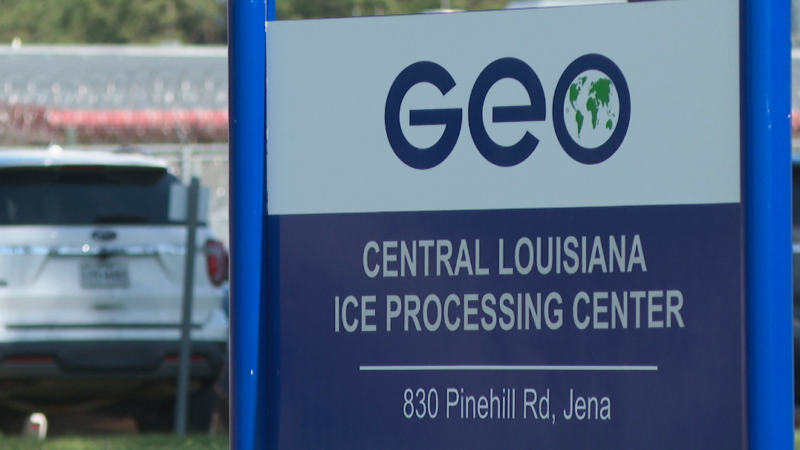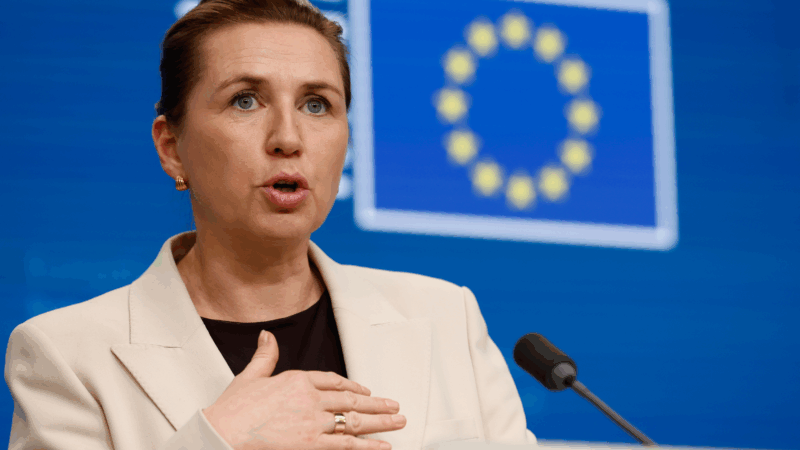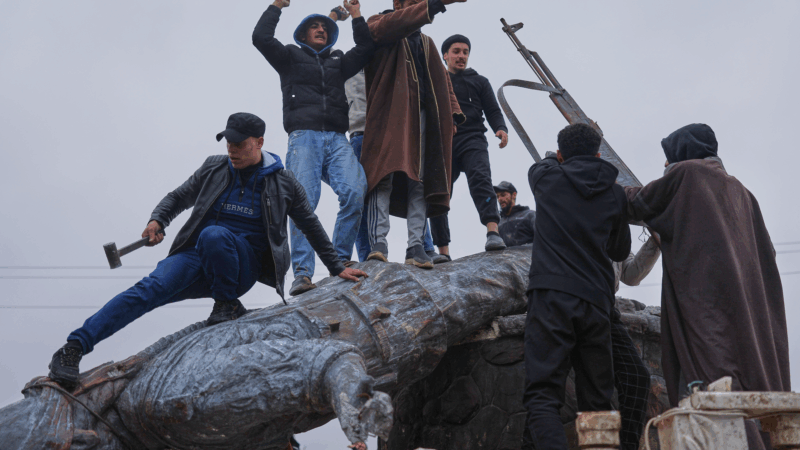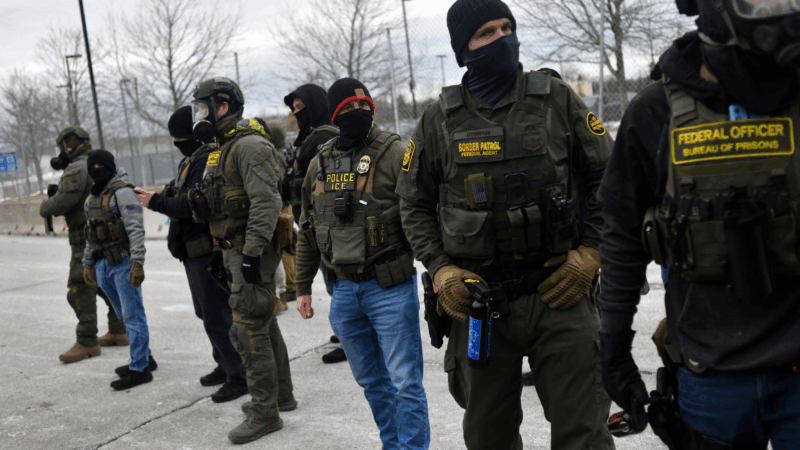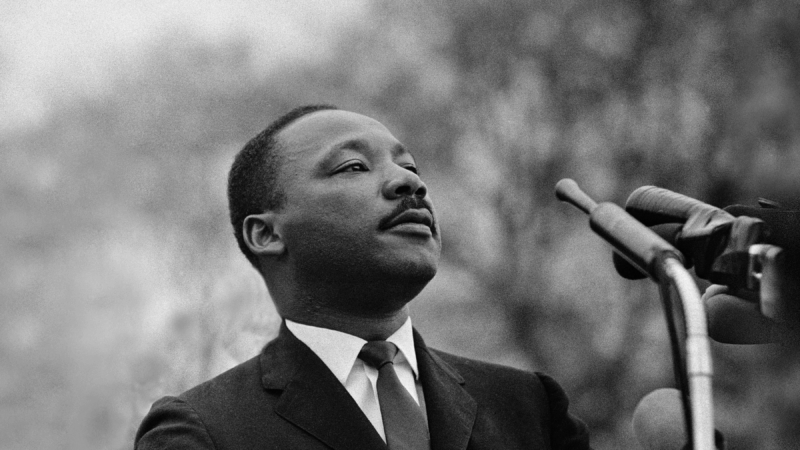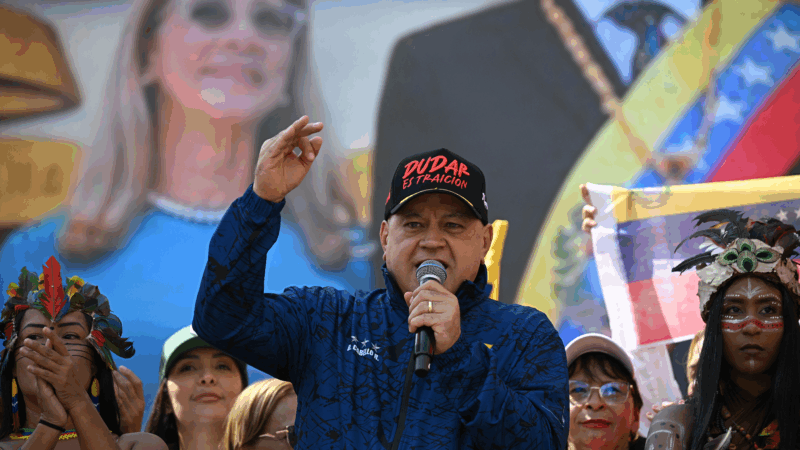Immigration judge to rule Friday on detained activist Mahmoud Khalil
JENA, La. – A Louisiana immigration judge on Tuesday gave the Trump administration a little more than 24 hours to turn over evidence it says it has against Mahmoud Khalil, the former Columbia University graduate student it is trying to deport over his pro-Palestinian activism.
Judge Jamee Comans said she will then rule on Friday whether the 30-year-old legal permanent resident can be deported or whether he must be freed. If the government’s evidence doesn’t support Khalil’s deportation, she said, she will “terminate” the case against him.
“If he’s not removable, I don’t want him to continue to be detained,” Comans said during an hourlong hearing in a small courtroom at the remote detention center where Khalil has been held since March 9, a day after his arrest. “I will have him released.”
Khalil, dressed in a blue jail gown, sat alone at a table holding a string of prayer beads while his legal team participated via video conference. He spoke briefly at the start of the hearing, to request that his wife, who is in New York and expected to give birth to their first child this month, be allowed to join the videoconference.
“Your honor, I would appreciate if you could let my wife in,” Khalil said. The judge agreed.

Ten journalists were present in the courtroom, along with 10 observers, some of whom wore Palestinian keffiyeh scarves. Court staff told them to remove the scarves before taking their seats.
A lawyer for the Department of Homeland Security spoke briefly to say the government was prepared to submit its evidence by Judge Comans’ 5 p.m. Wednesday deadline.
Khalil’s attorney, Marc Van Der Hout, welcomed the judge’s order for the government to produce it. He told the judge he’s been requesting it for weeks, and gotten no response.
But he expressed concern with the judge’s plan to rule so quickly on whether Khalil can be deported.
“That gives us no time to contest the evidence,” Van Der Hout said, and asked for more time to ensure Khalil’s due process. Comans denied his request.
“There is nothing more important to this court than Mr. Khalil’s due process and fundamental fairness,” the judge said.
Khalil’s case has become a crucial test for how far the government will be able to go to fulfill President Donald Trump’s promise to deport noncitizen, pro-Palestinian protesters whose activism Trump claims supports Hamas terrorism. Free speech advocates argue the administration is violating the Constitution by targeting immigrants for their activism and their political beliefs. Khalil and several other students and scholars who have been detained have challenged their arrests on constitutional grounds. Khalil’s challenge is currently being heard by the U.S. District Court in New Jersey.
After ICE agents arrested Khalil on March 8 and shipped him to Louisiana, Secretary of State Marco Rubio said he had revoked Khalil’s green card. He relied on a rarely-used statute that authorizes him to personally deport people whose presence in the U.S. he believes “would have potentially serious adverse foreign policy consequences for the United States.”
Days later, the government charged Khalil with several more civil violations. It alleges he withheld information on his 2024 green card application, including his work history with a United Nations relief agency, and his involvement with a pro-Palestinian activist group at Columbia University. All of the charges are civil, not criminal. At Tuesday’s hearing, Van Der Hout denied them all on Khalil’s behalf.
In an interview Sunday with NPR, he called all of the charges against Khalil “baseless.”
He said Khalil will appeal if he’s ordered deported.
“He understands it’s a political case,” Van Der Hout said. “He understands that this is the Trump administration trying to silence people in this country speaking out against what they’re doing. And he’s prepared for this fight.”
European leaders warn Trump’s Greenland tariffs threaten ‘dangerous downward spiral’
In a joint statement, leaders of eight countries said they stand in "full solidarity" with Denmark and Greenland. Denmark's Prime Minister Mette Frederiksen added: "Europe will not be blackmailed."
Syrian government announces a ceasefire with the Kurdish-led Syrian Democratic Forces
Syria's new leaders, since toppling Bashar Assad in December 2024, have struggled to assert their full authority over the war-torn country.
U.S. military troops on standby for possible deployment to Minnesota
The move comes after President Trump again threatened to invoke the Insurrection Act to control ongoing protests over the immigration enforcement surge in Minneapolis.
Martin Luther King Jr. had a dream … about health care
A doctor from Nigeria tells what Martin Luther King Jr. taught him about health, Justice and inequality.
Sunday Puzzle: It takes two
Ilyse Levine-Kanji of Westborough, Massachusetts plays the puzzle with Weekend Edition Puzzlemaster Will Shortz and host Ayesha Rascoe.
Venezuela: Maduro’s enforcer Cabello still central to power
The ousting of Venezuela's president raised hopes of change — but the politician now controlling the streets shows how little has really shifted.

